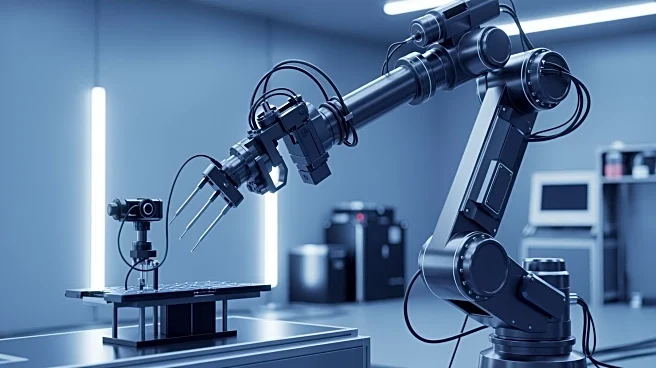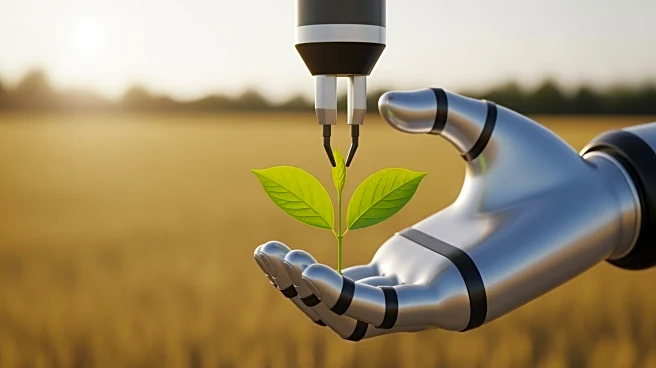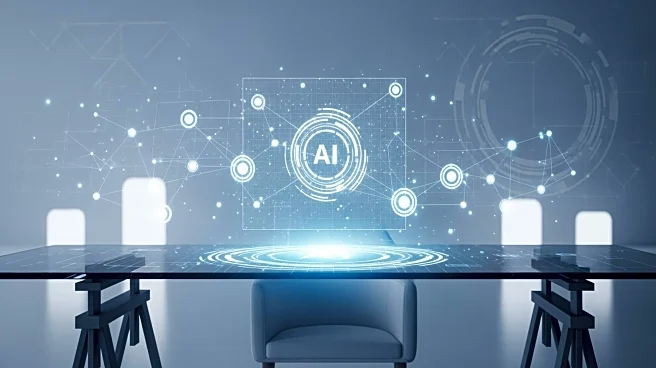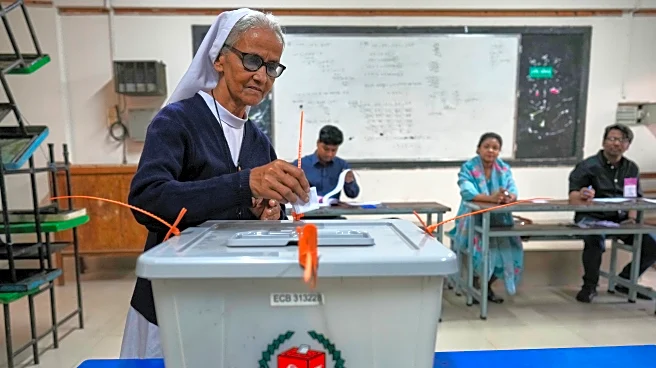What's Happening?
Caltech's Center for Autonomous Systems and Technologies (CAST) and the Technology Innovation Institute in Abu Dhabi have showcased a multimodal robot system, X1, developed through a three-year collaboration.
The demonstration featured M4, a robot capable of transitioning between drone and driving modes, highlighting advancements in autonomous systems. This collaboration underscores the potential of joint efforts in robotics, aiming to push the boundaries of what autonomous technologies can achieve. The demonstration included dynamic manipulation and coordination between different robotic components, showcasing the robot's ability to adapt to various tasks autonomously.
Why It's Important?
The demonstration of the multimodal robot system represents a significant step forward in robotics, particularly in autonomous systems. Such advancements have the potential to revolutionize industries by enhancing efficiency and reducing human intervention in complex tasks. The ability of robots to switch modes and perform dynamic manipulations autonomously could lead to innovations in logistics, manufacturing, and service industries. This progress also highlights the importance of international collaborations in driving technological advancements, potentially influencing global standards and practices in robotics.
What's Next?
Future developments in multimodal robotics could see these systems being integrated into commercial applications, transforming sectors such as transportation, logistics, and even domestic services. As these technologies mature, stakeholders including businesses and policymakers will need to address regulatory and ethical considerations surrounding autonomous systems. Continued collaboration between institutions like Caltech and the Technology Innovation Institute may lead to further breakthroughs, setting the stage for widespread adoption of advanced robotic systems.
Beyond the Headlines
The ethical implications of deploying autonomous robots in everyday settings are significant. Issues such as privacy, security, and the potential displacement of human workers need to be addressed as these technologies become more prevalent. Additionally, the cultural acceptance of robots performing tasks traditionally done by humans will play a crucial role in their integration into society.









